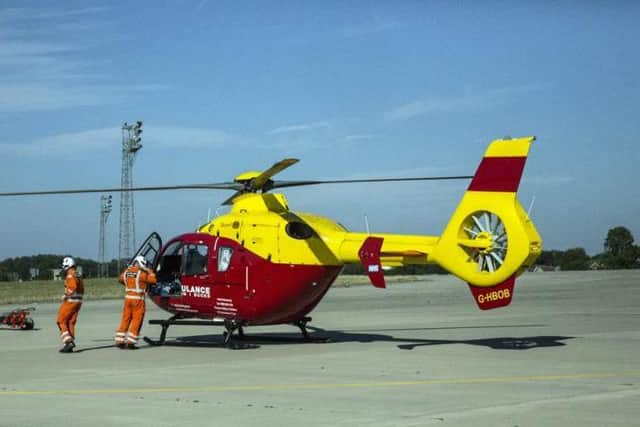Huge rise in Air Ambulance incidents in Milton Keynes region during lockdown
and live on Freeview channel 276
Data from October 2019 to September 2020 show a peak of 76 former patients from the Thames Valley who contacted the charity for support in March.
There was a drop in call outs in road traffic collisions when the first lockdown resulted in low volumes of traffic. However, demand from former patients remained high throughout the pandemic.
Advertisement
Advertisement
Thames Valley Air Ambulance was one of the first air ambulances in the country to introduce the patient liaison manager.


The role involves supporting patients, but also extends to loved ones and the bereaved.
After discharge from hospital, the patient liaison manager helps people on their recovery journey and signposts them to specialist providers to ensure they get help for their physical, mental and emotional wellbeing. But also, where a life-changing incident has affected employment and financial circumstances, people are guided so they can understand if they are entitled to any support and help with accessing it.
Adam Crosby, Patient Liaison Manager at Thames Valley Air Ambulance, said: ‘The road to recovery is different for everyone. For some patients and their families, being discharged from hospital is only the start of a very long journey. Thames Valley Air Ambulance is known for being at the frontline of saving lives, but the aftercare we offer is another vital service to help people come to terms with what was probably the most traumatic experience of their life.
Advertisement
Advertisement
“The huge increase in former patients needing my help shows how long a shadow Covid-19 has cast on people’s lives. People feel isolated and need support. But whether it’s a phone or video call, the pandemic is not stopping us from providing the aftercare so many people need.’